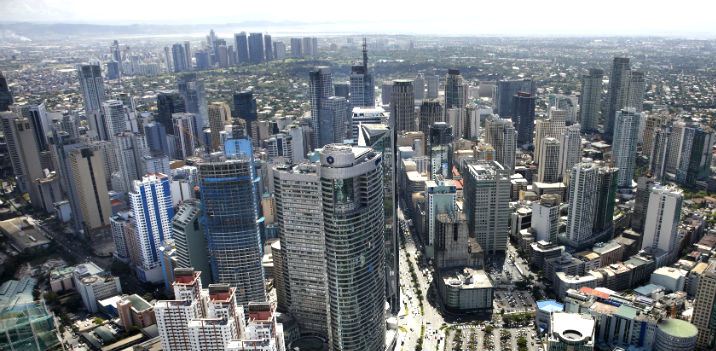News
Top World Bank official gives PHL ‘good job’ praise at APEC meet
LAPU-LAPU CITY, Cebu – A top World Bank official on Friday gave the Philippines a pat on the back saying it has done a “good job” in five areas.
At a press briefing on the Asia-Pacific Economic Cooperation (APEC) Finance Ministers’ Meeting held here, Axel van Trotsenburg, World Bank Vice President for East Asia and the Pacific Region, on Friday said the areas are:
Management of people’s money
“In the APEC context, best practices include fiscal transparency. The Philippines has been a leader in this,” van Trotsenburg said.
Getting more private companies in public infrastructure development
“In many economies, public sector dominates infrastructure. And they struggle to get the private sector to participate,” said van Trotsenburg.
But, for him, the Philippines is a model economy for successfully implementing private business ventures.
“They can look at the Philippines’ public-private partnerships,” he noted. “In East Asia, the Philippines has more private sector participation.”
Disaster-risk reduction and management
Due to experiences such as the super typhoon Yolanda (international name Haiyan) in 2013, the Philippines was able to find new ways to “build back better.”
Support for the poor
In terms of providing support for the poor, van Trotsenburg said the Philippines benefited from the experience of Mexico, Peru, and Colombia on the conditional cash transfer (CCT) program.
“Programs (such as the CCT) have shown… how to ease the situation of inequality,” he said. “To fight exclusion, you have to ensure that kids in disadvantaged situations have a fighting chance to succeed.”
In the Philippines and other Latin American economies, said van Trotsenburg, CCT had been scaled up quickly.
“There is a lot of transparency on this and active empowerment at the local level,” he said. “Conditional cash transfer programs have proven more successful in this.”
Overall economic management
On the Philippines’ overall economic management, van Trotsenburg said, “authorities have done a good job.”
“The Philippines allowed for prudent macroeconomic policies that have lowered the inflation rate,” he pointed out. “World economy has varying factors that influence economies positively or negatively.
The Philippines has done relatively well.”
But the Philippines was not the only economy doing a good job addressing the “growth agenda.” East Asia has been a world leader of economic growth.
However, van Trotsenburg said, although an important precondition, simple growth was still not enough because it also had to be inclusive and sustainable.
“While poverty reduction in the region has been unprecedented, a lot of challenges remain,” he said.
With 100 million people in East Asia still living in extreme poverty, he said the real challenge was to make sure that these people also benefited from the growth.
“The World Bank has emphasized that growth benefits all, and in that context has emphasized that policy matters,” van Trotsenburg said.
According to him, it is very important for World Bank to join the APEC meetings hosted by the Philippines this year.
“The APEC setting is unique because it unites East Asia with key countries in the West,” he said. “As it unites Asia and the West, APEC allows for powerful exchange of knowledge and experiences across hemispheres.”






















